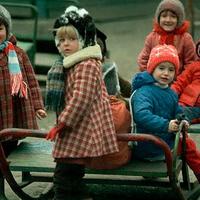27
27
27
27
27
27
27
27
27
27
Многие люди ужасно боятся зубных врачей.
beaucoup de||terriblement|||
many|people|terribly|are afraid|of the teeth|dentists
||||Zahn-|
||strasznie|boją się|dentystów|dentystów
||terriblemente|temerle a||
Viele Menschen haben schreckliche Angst vor Zahnärzten.
Many people are terribly afraid of dentists.
De nombreuses personnes ont terriblement peur des dentistes.
У меня тоже в детстве был такой страх.
|||||||Angst
||||childhood||such|fear
|||||||strach
||también||infancia||similar|
Diese Angst hatte ich auch als Kind.
I also had such fear in childhood.
J'ai également eu cette crainte lorsque j'étais enfant.
子供の頃も怖かったです。
Вообще-то, зубы у меня были здоровые, так как родители следили, чтобы я регулярно чистила их и не ела много сладкого.
en fait||||||||||||||||||||sucré
actually|actually|teeth||||healthy|because (with 'так как')||the parents|made sure|that||regularly|cleaned|them|||ate||sweet
||||||||||aufpassten||||putzte||||||Süßigkeiten
w ogóle||zęby||||zdrowe||||dbali o|||regularnie|my teeth||||jadłam||słodyczy
En realidad||dientes|||estaban|sanos||||cuidaban de que||||cepillara||||comiera||dulces
Eigentlich waren meine Zähne gesund, da meine Eltern darauf achteten, dass ich sie regelmäßig putzte und nicht viele Süßigkeiten aß.
Actually, my teeth were healthy, as my parents made sure that I cleaned them regularly and did not eat a lot of sweets.
En fait, mes dents étaient saines car mes parents veillaient à ce que je les brosse régulièrement et que je ne mange pas beaucoup de sucreries.
Однажды в первом классе нас всех повели к зубному врачу на проверку.
||||||führten||Zahnarzt|||Untersuchung
once||first|in|us|all|took||to the dentist|to the dentist||a check
Pewnego razu||pierwszym||||zaprowadzili||dentysta|||kontrolę
Una vez||primer||||llevaron||al dentista|||revisión dental
Eines Tages in der ersten Klasse wurden wir alle zur Untersuchung zum Zahnarzt gebracht.
Once, in first grade, we were all taken to the dentist for a check-up.
Un jour, en première année, nous avons tous été emmenés chez le dentiste pour un contrôle.
Некоторым детям лечили больные зубы и они плакали, конечно.
einigen||behandelten|kranken||||weinten natürlich|
some|some children|were treating|sick|teeth|||were crying|of course
||trataban|dientes enfermos||||lloraban|
niektórym|dzieciom|leczyli|chore||||płakały|
Einige Kinder wurden wegen schlechter Zähne behandelt und sie weinten natürlich.
Some children were treated for bad teeth and they cried, of course.
Certains enfants ont été soignés pour des douleurs dentaires et ont pleuré, bien sûr.
Когда я села в кресло врача, то стала громко реветь и не давала врачу проверить мои зубы.
||||||||a gritar fuerte|llorar fuerte|||no dejaba||revisar||
||||Sessel|||||weinen|||ließ||||
when||sat||the chair|the dentist|then|started|loudly|to cry loudly|||was not letting||to check|my|
||||||||fort|pleurer fort|||||||
||usiadłam||fotel doktora|||zaczęłam|głośno|krzyczeć|||pozwalałam||zbadać||
Als ich auf dem Arztstuhl saß, fing ich an laut zu weinen und ließ den Arzt meine Zähne nicht kontrollieren.
When I sat down in the doctor's chair, I began to roar loudly and did not allow the doctor to check my teeth.
Lorsque j'ai pris place dans le fauteuil du médecin, j'ai commencé à brailler bruyamment et j'ai refusé que le médecin examine mes dents.
Она же меня уговаривала, просила на секундочку открыть рот, чтобы только посмотреть, нет ли у меня больных зубов.
||||demandait|||||||||||||
|||überredete|||einen Moment|öffnen||||||||||Zähnen
|||was persuading|was asking||for a moment|to open|mouth||||no||to||cavities|teeth
|||namawiała|prosiła||sekundkę|otworzyć|usta||||||||chorych|zębów
|||me convencía|me pidió|||abrir|boca||||||||dientes enfermos|
Sie überredete mich, bat mich, kurz den Mund zu öffnen, nur um zu sehen, ob ich schlechte Zähne habe.
She persuaded me, asked me to open my mouth for a second, just to see if I had sick teeth.
Elle m'a incité à ouvrir la bouche une seconde, juste pour voir si je n'avais pas de mauvaises dents.
彼女は私を説得し、私が病気の歯を持っているかどうかを確認するために、少しの間口を開けるように私に頼みました。
Я долго не соглашалась, но в конце концов врачу удалось меня уговорить.
|||||||||||überreden
|long||agreed||||end||managed to||to persuade
|||zgadzałam się||||||udało się||przekonać
|mucho tiempo||aceptaba||||||logró||
Ich war lange nicht einverstanden, aber am Ende gelang es dem Arzt, mich zu überzeugen.
I did not agree for a long time, but in the end the doctor managed to persuade me.
Je n'étais pas d'accord pendant longtemps, mais le médecin a fini par me convaincre.
Оказалось, что все мои зубы здоровые и я напрасно так боялась.
||||||||umsonst||
turned out|||||healthy|||in vain||was afraid
||||||||na próżno||
Resultó que|||||sanos|||||tenía miedo
Es stellte sich heraus, dass alle meine Zähne gesund sind und ich mich umsonst gefürchtet hatte.
It turned out that all my teeth were healthy and I was wrong to be so afraid.
Il s'est avéré que toutes mes dents étaient saines et j'ai eu peur pour rien.
私の歯はすべて健康で、とても恐れることは間違っていたことがわかりました。
Врач сказала мне, чтобы я перестала плакать, и отправила обратно в класс.
|||||aufhören||||||
doctor|||||stopped|crying||sent|back||
|dijo||||dejara de|llorar|||de vuelta||
lekarka|||||przestałam|płakać||odesłała|z powrotem||klasa
Der Arzt sagte mir, ich solle aufhören zu weinen und schickte mich zurück in die Klasse.
The doctor told me to stop crying and sent me back to class.
Le médecin m'a dit d'arrêter de pleurer et m'a renvoyée en classe.
Кстати, я думаю, что я была, наверное, единственным ребёнком, у которого не было больных зубов, так как очень многим детям из нашего класса в тот день полечили зубы.
|||||||einzigen|||||||||||||||||||behandelt|
by the way|||||||the only|child||who|||cavities|||||many||||class||||had their teeth treated|
||||||pewnie|jedynym||||||chorych|||||wielu||||klasy||||leczyli zęby|zęby
Por cierto|||||era|probablemente||niño/a||del cual|||enfermos||||muy|a muchos|a muchos niños||de nuestra clase|||ese|día||dientes
Übrigens glaube ich, dass ich wahrscheinlich das einzige Kind war, das keine schlechten Zähne hatte, da so viele Kinder in unserer Klasse an diesem Tag ihre Zähne behandeln ließen.
By the way, I think I was probably the only child who didn't have any cavities, because many children in our class had their teeth treated that day.
D'ailleurs, je pense que j'étais probablement le seul enfant qui n'avait pas de mauvaises dents, car beaucoup d'enfants de notre classe s'étaient fait soigner les dents ce jour-là.

